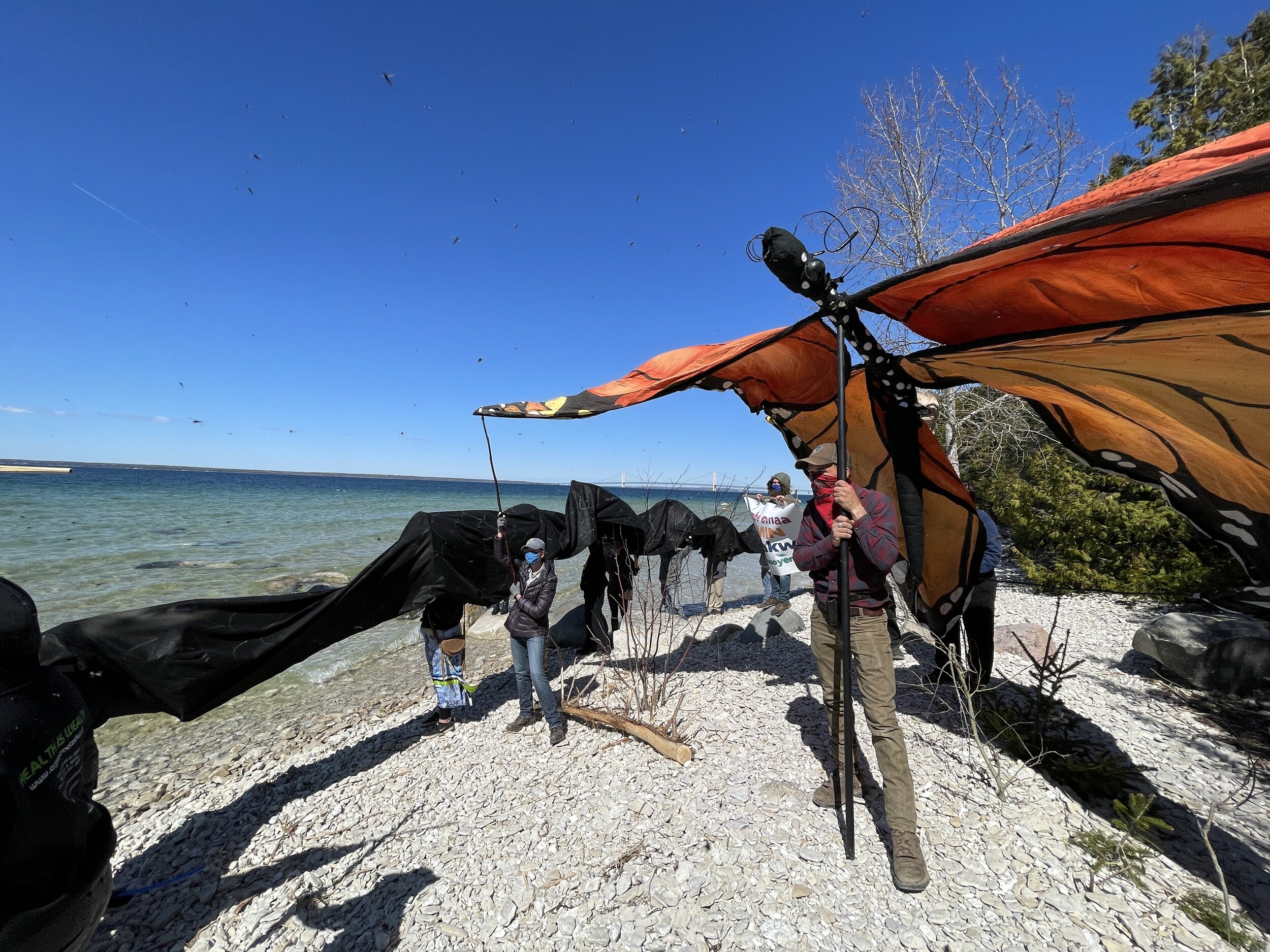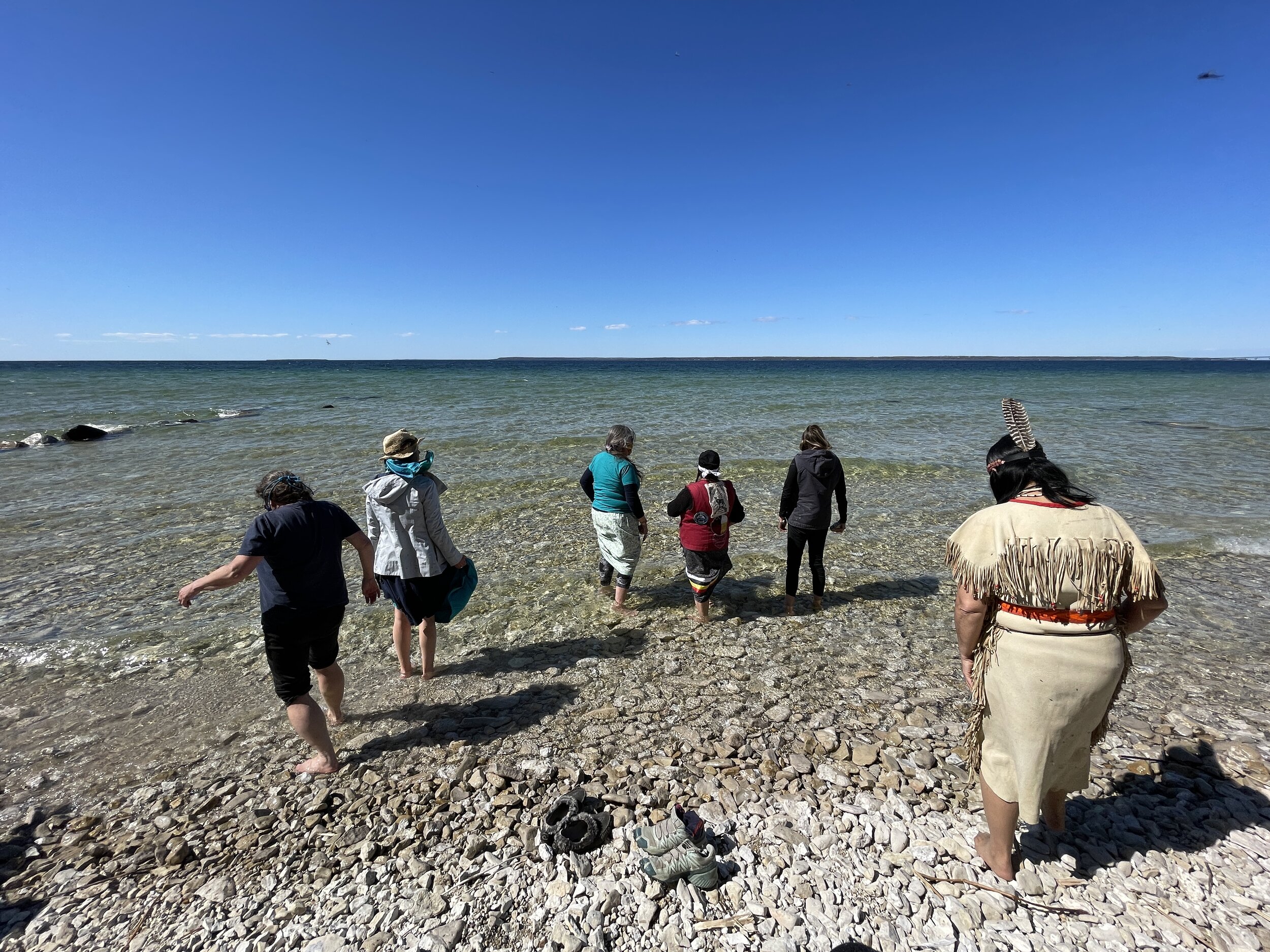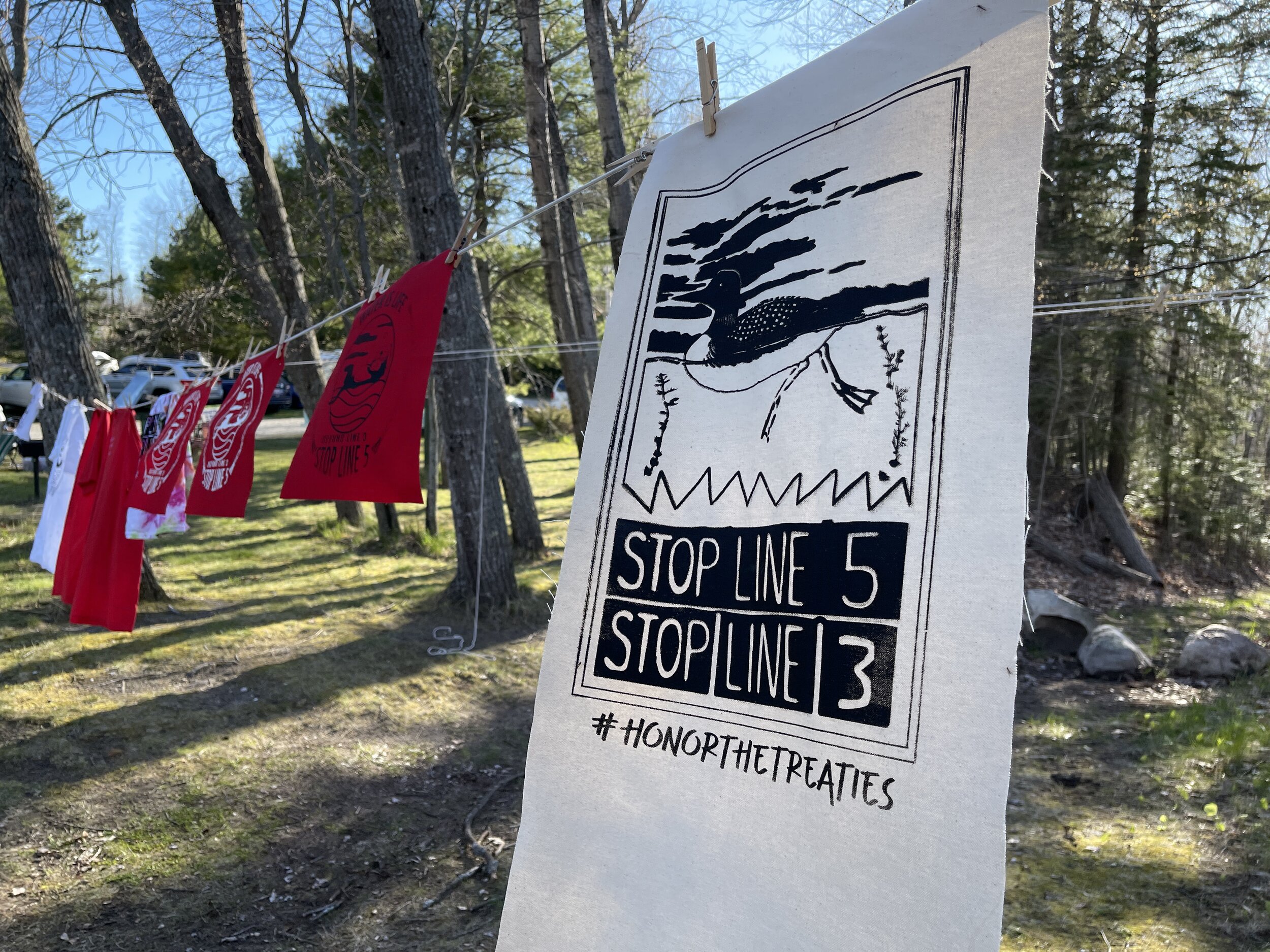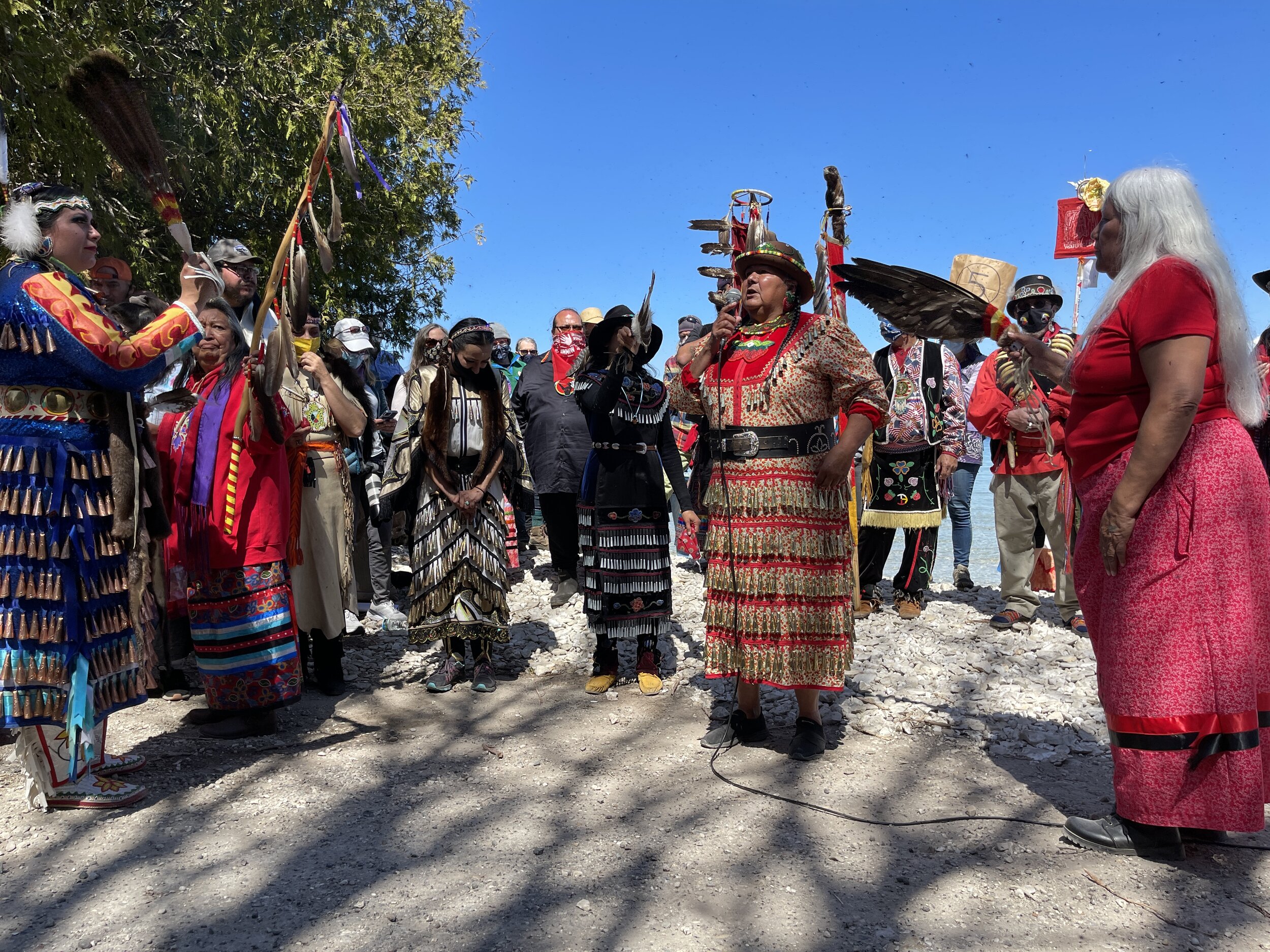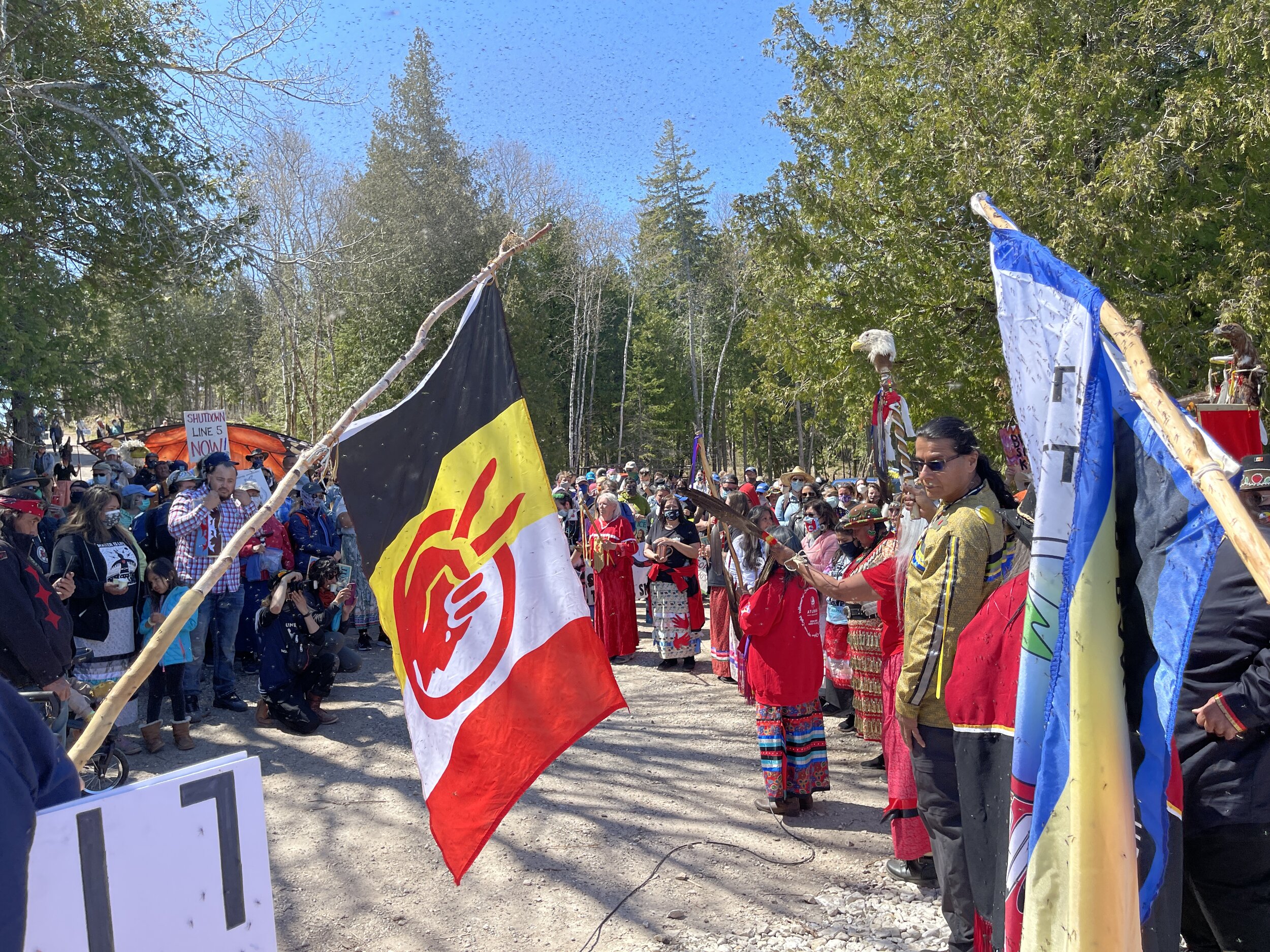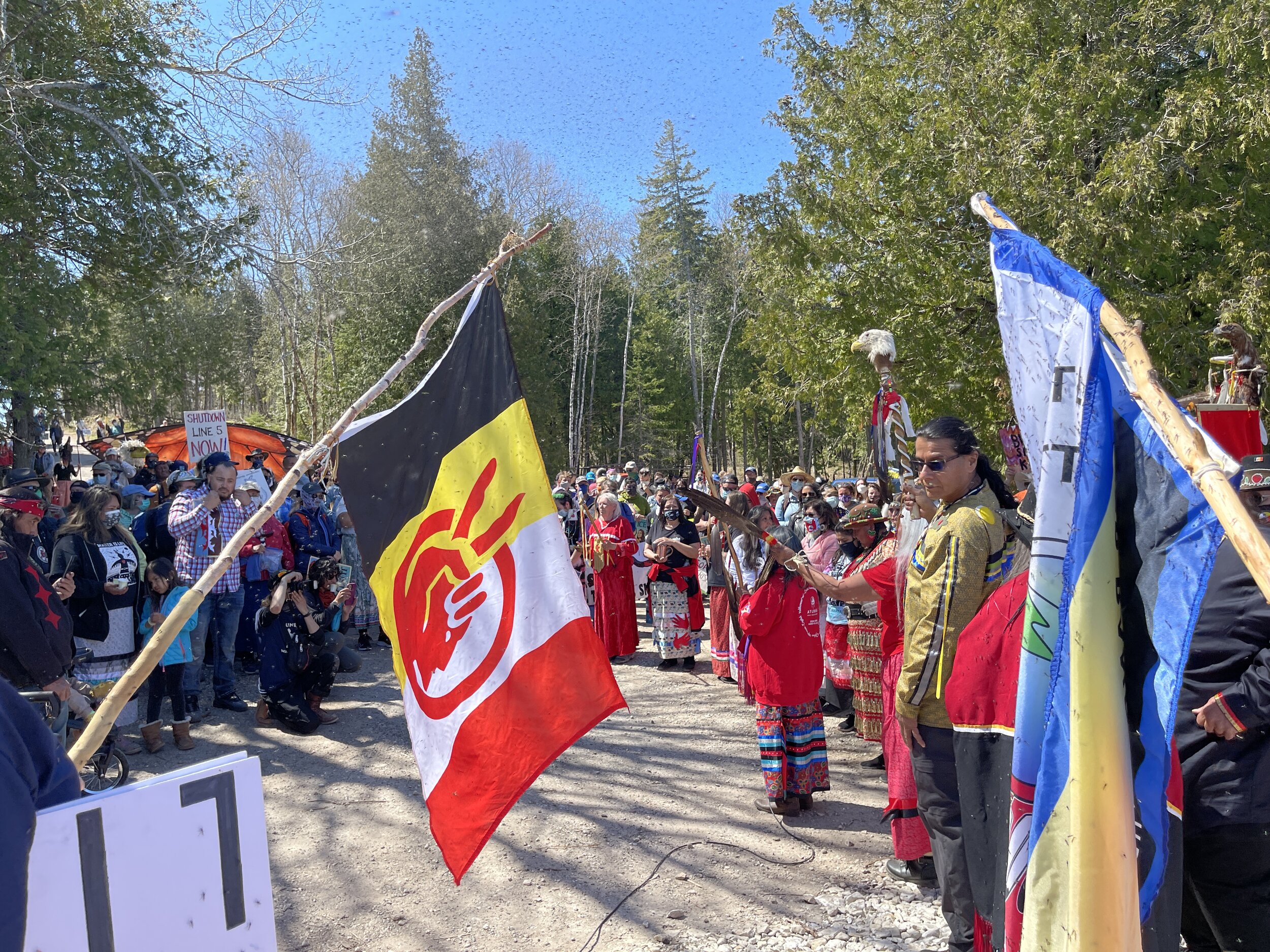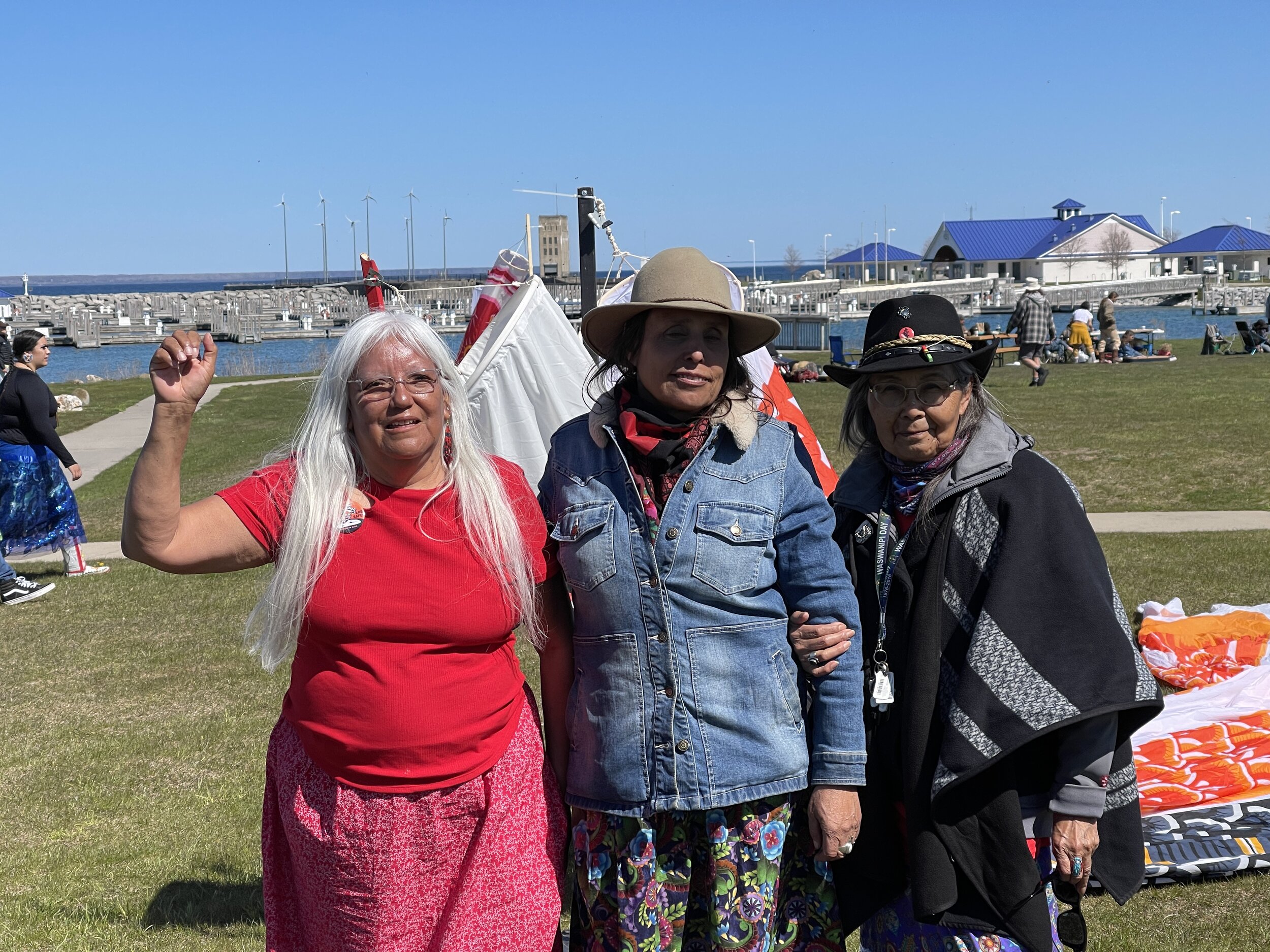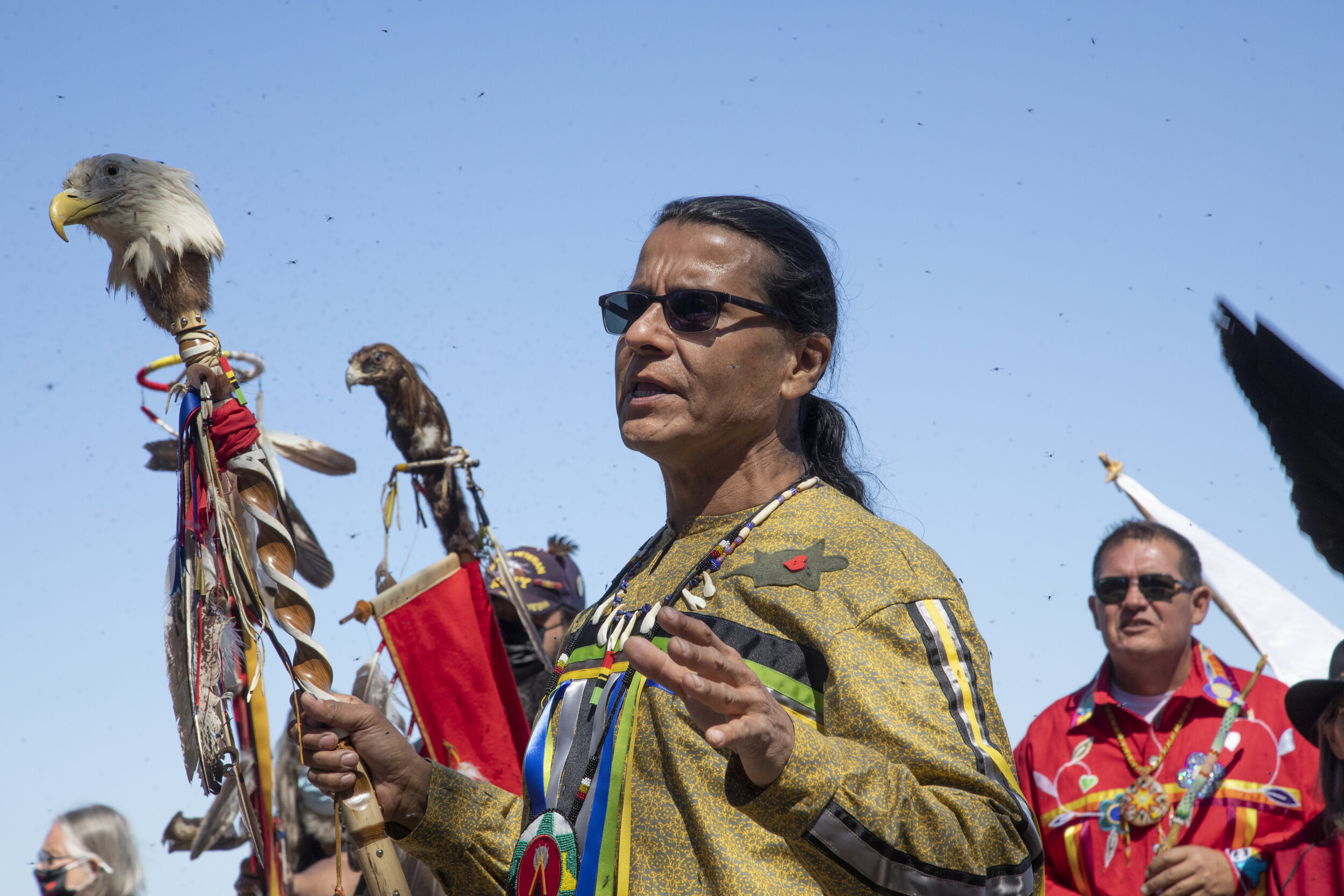Tribes, activists from across U.S. gather up north in solidarity of Line 5 + LINE 3 fight
By Laina G. Stebbins - May 13, 2021
Photos by Keri Pickett
The Indigenous-led celebrations of Enbridge’s “eviction” from the Straits of Mackinac continued Thursday, even as the Canadian oil company dug its heels in and continued pumping oil through its controversial Line 5 pipeline.
As of midnight Wednesday, the oil company is considered by the state to be an international trespasser in the Straits. Tribal citizens from Michigan and all over the country, flanked by environmentalists and supporters, set out Thursday to send a pointed reminder of this to Enbridge.
Gov. Gretchen Whitmer had ordered in November that Enbridge cease operation of Line 5 by May 12 due to repeated violations of its 1953 easement with the state. Both parties are currently locked in litigation over a potential shutdown; Enbridge has stated it will not comply unless the state wins a court order forcing it to.
But the overwhelming mood of Thursday’s festivities was one of reverence to the water and joy in community solidarity. After the anti-Line 5 Oil & Water Don’t Mix coalition led a walk to Enbridge’s McGulpin Point pumping station gates to deliver an “eviction notice,” along with a cardboard box to cheekily “help them move out,” Indigenous people took the lead as events stretched into the evening.
Under a cloudless blue sky, the group of tribal citizens, led by teacher and healer Beatrice Menase Kwe Jackson, sang songs and spoke to the approximately 200 attendees at the Straits about the importance of embodying the “water is life” mantra.
Climate Stick Project necklace at "Enbridge eviction" celebration, Conkling Park, Mackinaw City | Laina G. They then led the crowd to the rocky shore of McGulpin Point, prayed together, smudged sage and sang traditional songs as four Anishinaabek men slowly waded into the clear water of the Straits.
When Sault Ste. Marie Tribe of Chippewa Indians member and MackinawOde founder Nathan Wright reached the large rock in the Straits, he prayed and placed tobacco on the rock as a sacred offering to the water.
Tobacco is frequently used in traditional Anishinaabek ceremonies. It is thought to be the first plant given to Native people by the Creator, and is one of four sacred medicines. Tobacco is said to open the door between the spirit world and human world when used during prayer.
As part of old Chippewa traditions, Jackson explained, “For men to be happy and strong, in the spring they should walk into the cold water. And they should do that 15 times to make their legs strong, for taking care of their families, and if they have to prepare for war. That is how you purify yourself, is suffering the cold water.
“They took their tobacco, and they put it on that rock and he prayed that they would be strong enough to protect their families. And the jingle dress dancers dance for healing for anyone who is sick right now, including our Earth,” Jackson said.
After the ceremony, participants were bussed to Conkling Park overlooking the Mackinaw Bay. All were encouraged to patronize Manogin, an Indigenous-owned food market nearby.
Cars with license plates from Michigan, Minnesota, California, Oklahoma, Washington and more lined the parking lots while activists and supporters set up chairs and blankets on the park grass. A series of speeches and stories from environmental and clean energy activists commenced at the park amphitheater before the crowd of several hundred people.
Indigenous speakers included Regina Gasco Bentley, chair of the Little Traverse Bay Bands of Odawa Indians (LTBB); Indigenous activist and attorney Holly T. Bird; Whitney Gravelle, chair of the Bay Mills Indian Community (BMIC), Fred Harrington, LTBB tribal council member; Martin Reinhardt, Sault Ste. Marie Tribe citizen and many more.
“As Anishinaabe women, it is our sacred responsibility to protect the waters. Our ancestors fought for us, our treaty rights, our traditions, and now it’s our turn to fight for the future for our next seven generations,” Bentley said.
Speakers were interspersed with bouts of live music with lyrics about clean water and respect for the earth. Many Native speakers underscored long-held treaty rights retained by tribes that predate any oil pipeline-related interstate agreements, which they say Enbridge has chosen to blatantly ignore.
“Treaties are the supreme law of the land,” Gravelle said. “Enbridge will say that it has an Indigenous peoples policy, that they honor treaty obligations, that they honor the United Nations Declaration on the Rights of Indigenous Peoples.”
But, she said, those require free, prior and informed consent of the tribes affected before doing any work on lands or waters that may impact Indigenous communities — and all 12 tribal nations in Michigan are opposed to Line 5.
“And yet Enbridge continues to not only defy that consent, that free, prior and informed consent that they say they follow. They also, as we know today, continue to operate in violation of Michigan law,” Gravelle said, in reference to Whitmer’s shutdown deadline that Enbridge is violating.
The events capped off with an appearance by Winona LaDuke — an Indigenous activist, director of the Minnesota-based Indigenous environmental group Honor the Earth and a former Green Party vice presidential candidate.
LaDuke was just one of many Honor the Earth members to have traveled from Minnesota for the events. Anti-Line 3 activists were plentiful both days, with many sporting patches identifying them as members of “Camp Migizi” (“migizi” means “eagle”), a group of Line 3 water protectors based near Minnesota’s Fond du Lac Reservation.
“Well, you don’t often get invited to an Enbridge eviction party,” LaDuke said in an interview with the Advance. “I mean, the governor of Michigan is courageous and right. And the public trust is to protect the water, and I am here to support the governor and the tribes of Michigan.
“… Enbridge just lost its social license. It is now operating illegally, and it’s very important to point out that they’re a rogue corporation. I think the federal government should take note of how they are basically bullying their way through the Great Lakes and putting all of this at risk,” LaDuke continued.


